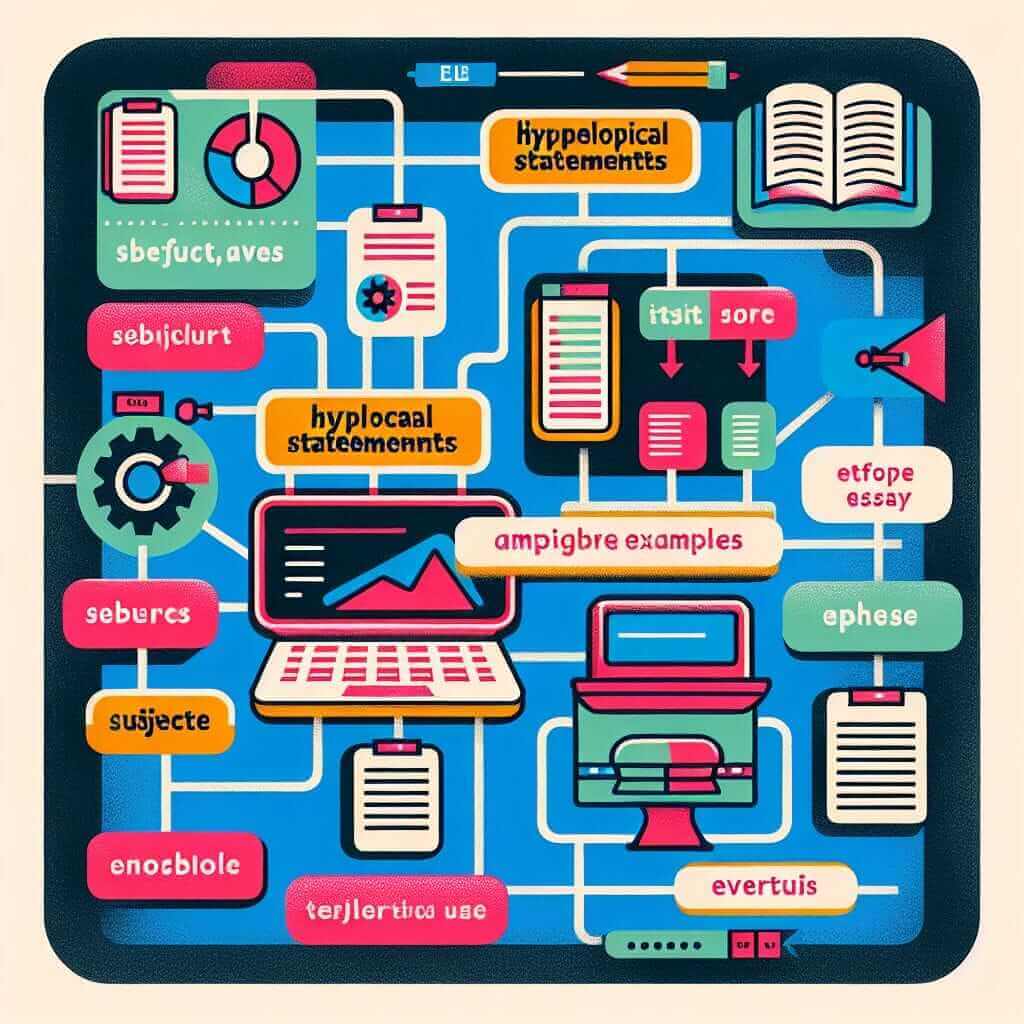Hypothetical statements allow us to explore possibilities and imagine different scenarios. In IELTS Writing, especially in Task 2, using hypothetical statements effectively demonstrates a strong command of grammatical structures and your ability to present complex ideas. Let’s explore how to utilize these effectively.
Examples of hypothetical statements in IELTS Writing:
Task 2: Some people believe that the government should invest in public transportation, while others think that private vehicles are a better solution. Discuss both views and give your opinion.
- Hypothetical statement: “Suppose the government were to heavily subsidize public transportation, making it significantly more affordable. This could incentivize a large-scale shift away from private vehicles, leading to reduced congestion and pollution.”
Analysis: This sentence sets up a hypothetical scenario where the government subsidizes public transport. It uses the past subjunctive (“were to subsidize”) to indicate the hypothetical nature and then explores the potential consequences using conditional structures (“could incentivize,” “leading to”).
Task 1: The chart below shows the percentage of people using different modes of transport in a European city over a 20-year period.
- Hypothetical statement: “Had the city not invested heavily in cycling infrastructure, it is unlikely that bicycle use would have seen such a dramatic increase.“
Analysis: This statement uses a past perfect hypothetical (“Had the city not invested…”) to suggest that the observed increase in cycling is directly related to the city’s investment in infrastructure. It highlights a cause-and-effect relationship by imagining a scenario where the investment hadn’t happened.
Understanding Hypothetical Statements
Hypothetical statements are used to discuss situations that are not real or haven’t happened yet. They allow us to speculate, imagine consequences, and present arguments from different perspectives. In the context of IELTS Writing, mastering hypothetical statements is crucial for achieving a Band 8 or higher, as they:
- Showcase a wider range of grammatical structures.
- Demonstrate your ability to express complex ideas.
- Add sophistication and variety to your writing style.
Utilizing Hypothetical Statements in IELTS Writing
Task 2 (Essay Writing)
In Task 2 essays, hypothetical statements can be powerful tools for:
-
Exploring Both Sides of an Argument: You can use “suppose” or “imagine” to present contrasting viewpoints:
- “Suppose the government were to implement stricter regulations on advertising to children. This could lead to healthier eating habits but might also stifle creativity in the advertising industry.”
-
Discussing Potential Consequences: Use “if” clauses to illustrate the potential outcomes of different actions:
- “If more companies adopted flexible work arrangements, it could lead to a happier and more productive workforce. However, it might also pose challenges for communication and teamwork.”
-
Offering Solutions and Recommendations: Use hypothetical statements to propose potential solutions:
- “Imagine a world where renewable energy sources entirely replaced fossil fuels. This would significantly reduce our carbon footprint and mitigate the effects of climate change.”
Task 1 (Report Writing)
While Task 1 focuses on describing data, you can strategically incorporate hypothetical statements to:
-
Explain Trends and Patterns:
- “Had the company not diversified its product range, it is likely that profits would have continued to decline.“
-
Speculate about Future Outcomes:
- “If this trend continues, it is projected that solar power will become the dominant source of energy within the next decade.“
Achieving Band 8 Clarity: Constructing Hypothetical Statements
To use hypothetical statements effectively and aim for a Band 8, consider these tips:
-
Master Conditional Structures: Familiarize yourself with different types of conditional sentences (zero, first, second, third, and mixed conditionals) to express varying degrees of probability and possibility.
-
Use a Variety of Expressions: Don’t just rely on “if.” Experiment with phrases like “suppose,” “imagine,” “provided that,” “on the condition that,” and “in the event that.”
-
Maintain Clear and Concise Language: Ensure your hypothetical statements are easy to understand and flow logically within your sentences and paragraphs.

Common Mistakes to Avoid
-
Incorrect Verb Tenses: Be mindful of using the correct verb tenses within your hypothetical statements, especially when dealing with different time frames.
- Incorrect: If I would have studied harder, I would have passed the exam.
- Correct: If I had studied harder, I would have passed the exam.
-
Overusing Hypothetical Statements: While effective, using too many hypothetical statements can make your writing sound repetitive and lacking in concrete evidence. Use them judiciously.
-
Lack of Clarity: Ensure your hypothetical statements are directly relevant to the topic and clearly express the intended meaning. Avoid ambiguity.
Conclusion
Mastering hypothetical statements is a valuable asset for achieving a Band 8 in IELTS Writing. By incorporating them naturally and accurately, you can showcase your grammatical range, express complex ideas effectively, and add sophistication to your writing. Remember to practice constructing various types of hypothetical statements and pay close attention to verb tenses to avoid common errors. Good luck!